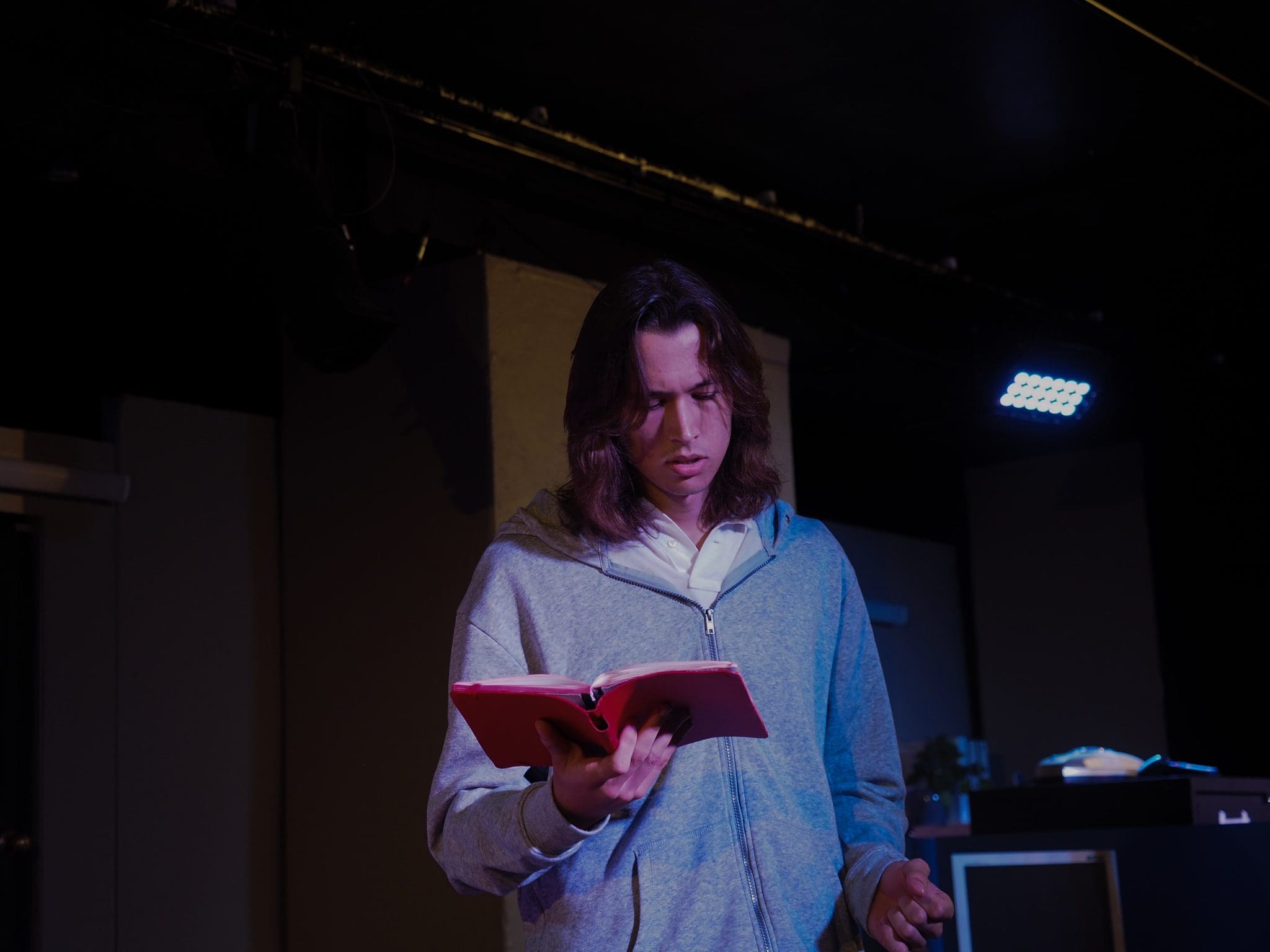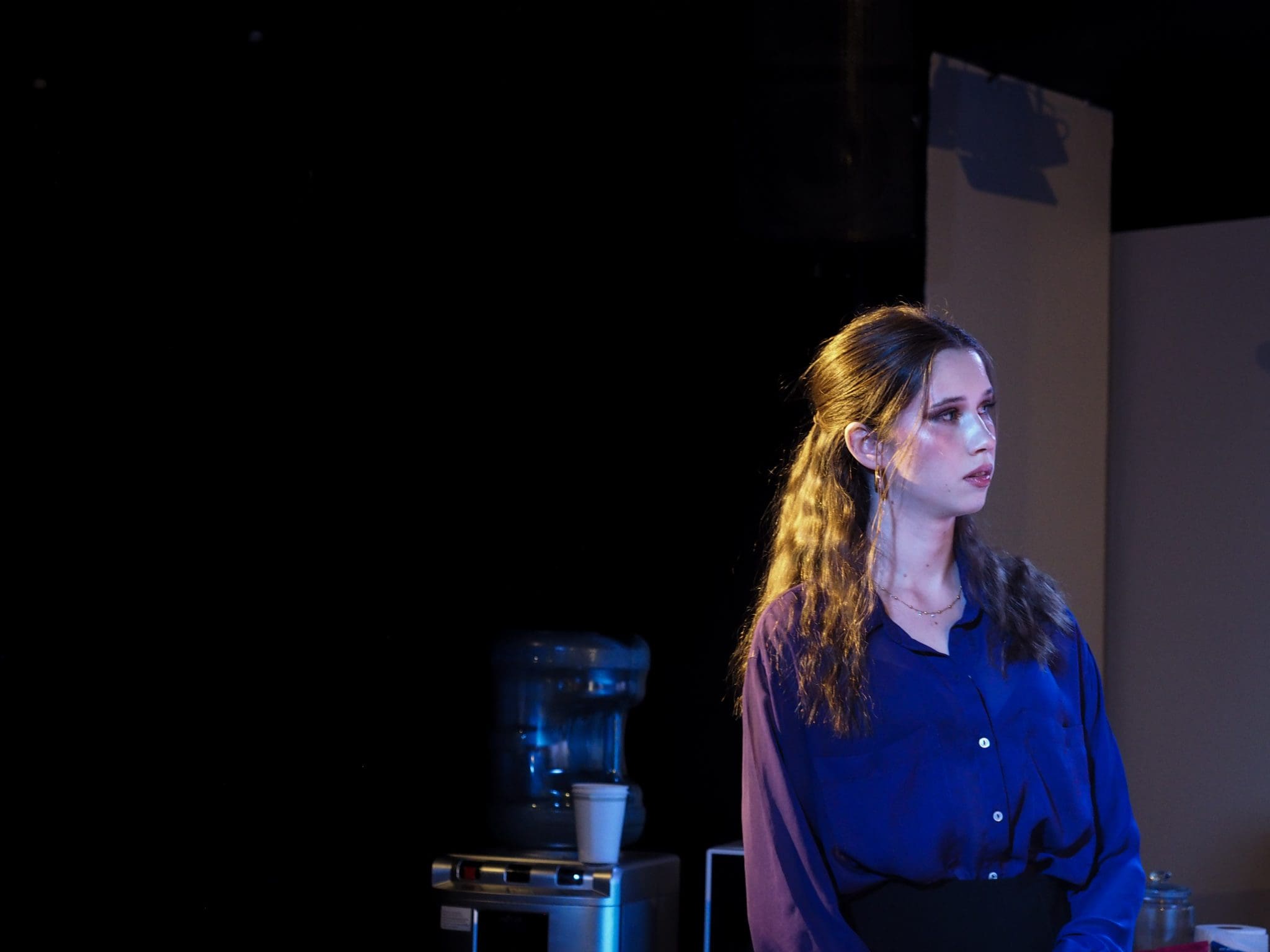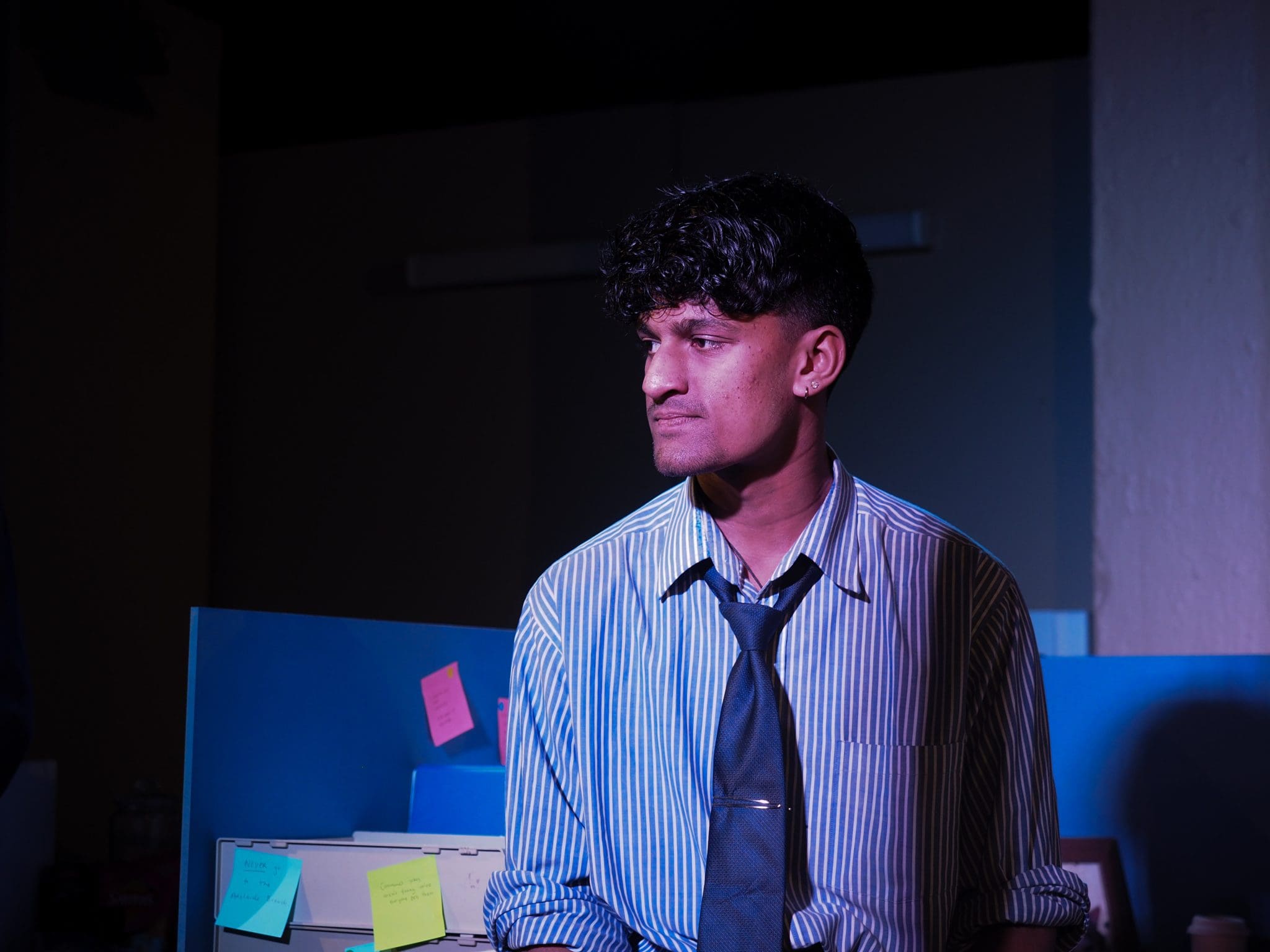Walking into Nowhere Fast —with its tagline: “The insecure alpha male. The hysterical office slut. The unhinged incel. The cool girl” — you know you are about to witness a hectic dynamic.
It is important to firstly note how admirable it is for Rose Cooke’s vision to have survived from her HSC days and culminated in the combined efforts of producer and dramaturg Aqsa Suryana, and co-producer Alexis Nguyen. It really made me appreciate how they confronted gender archetypes in and beyond the workplace. I was sitting near the brains behind the show and it enhanced my viewing experience hearing their laughter and pride over this production.
The set design is reminiscent of an American cubicle office, however it was markedly Australian; SUDS archive binders as props and tacky office chairs that no one finds comfortable. Let’s not forget the desktop computers, resident pot plant and cute kitchenette area with Smiths’ chips. Get it? One criticism I have is that the meerkat-looking toy on the desk gave me traumatic memories of the infinite Compare the Market advertisements.
There are continuous strobing lights in this show for the function of adding to the high stakes. Yet, the eerie music did most of the captivating and contributed to a ‘Twilight Zone’ atmosphere. While both added needed intensity to the play, they also became repetitive and jarring after a few repeats.
Nevertheless I was drawn into the blurring of the personal and workplace relations. There were multiple pieces of dialogue that I wanted to memorise and put in my pocket. They captured many observations about the way the world revolves around who wields power and resources — in this case, represented by the keys to the office. Additionally, the offstage action was every bit as intense as the onstage scenes.
I never thought I would be saying that the incel character — from hereon known as Ed the incel — was the standout. Perfectly played by Felix Tonkin, his whole burn-book agenda is so petty but is befitting of this rapidly spreading subculture. He takes everything up a notch with his extremist views and actions. He is vulnerable but not to the point of sympathy as it is obvious that his own behaviour leads to disastrous outcomes.




Joan is the embodiment of “I’m not like other girls but I know and own it”. Ruby Lewis-Millar does a great job at communicating the nuances of this constructed facade but also delivers fantastic deadpan reactions. It reminded me of Margot from last year’s The Menu, and her consistent sarcasm.
Adam, the boss (Michael Sebastian) repetitively unravels in front of our eyes. While in many instances Adam carries many privileges – notably from going to Knox Grammar – the intersectionality of race and his life as a second generation immigrant added complex commentary to the power hierarchy. No one is excluded from exploiting their entitlements – whether earned or inherited.
As for Jadzia Stronell’s Sharon, she appears to be a stereotypically shallow woman who takes advantage of her looks. However, there was a seamless subversion of that archetype in which she takes charge and also pitches in to protect the sisterhood. It was very heartening to see it depicted and not glossed over.
I also appreciated the characters doing seemingly mundane things like playing around with desk accessories while nervous or bored or waiting for someone to save them. For example, the men eating snacks in a time of crisis whilst the females were holding their phones for signals presented a clever dichotomy and running gag.
And boy, was I glad for some reverse mansplaining from Joan to Ed the Incel. Especially that men get more of a free pass in life. This exchange delivered much needed catharsis, and is probably what Don’t Worry Darling tried to achieve.
Cooke specifically said the play “exists outside myself” and almost “created itself”. No, Rose, you did, and now many people can go see it from 19 April — 28 April at the Cellar Theatre.





